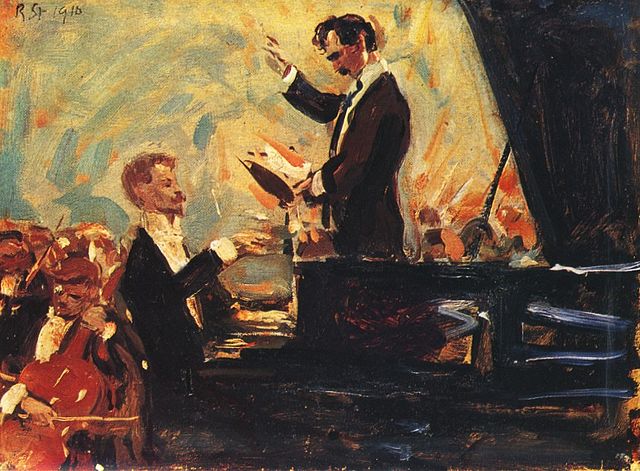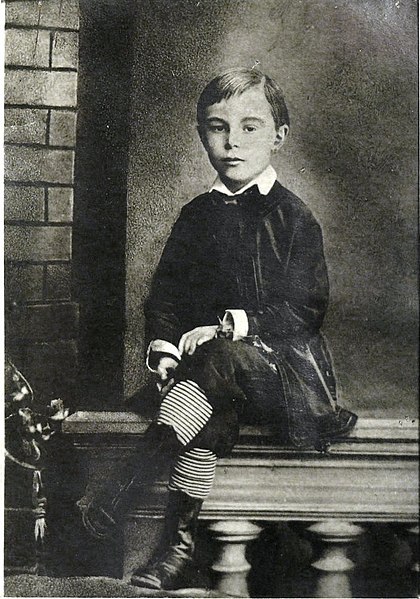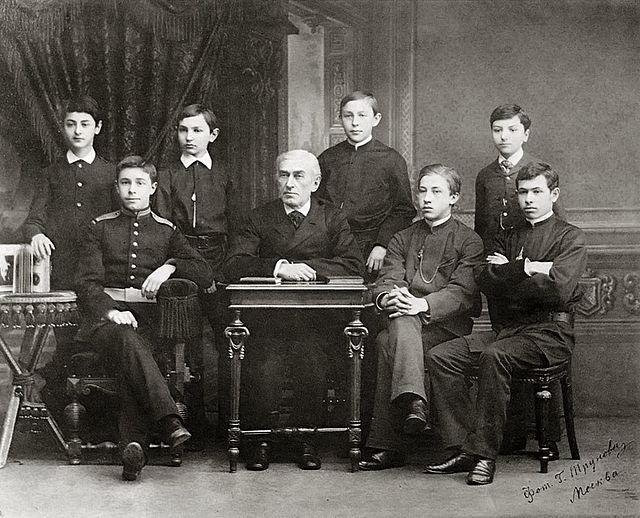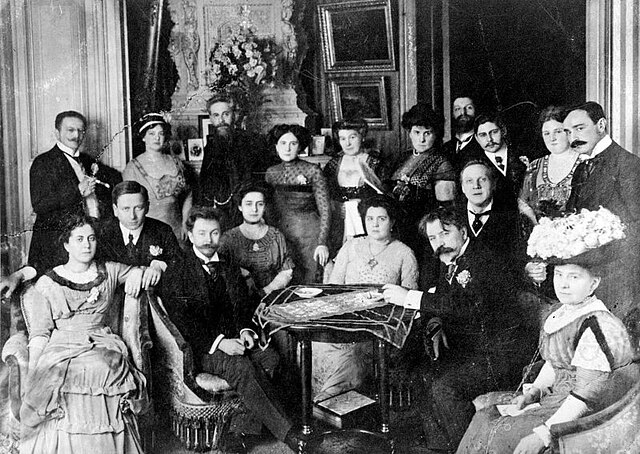Piano Concerto (Scriabin)
The Piano Concerto in F sharp minor, Op. 20, is an early work of the Russian composer Alexander Scriabin (1872–1915). Written in 1896, when he was 24, it was his first work for orchestra and the only concerto he composed. Scriabin completed the concerto in only a few days in the fall of 1896, but did not finish the orchestration until the following May. Belyayev paid the composer 600 rubles ; it premiered in October 1897 and was finally published in 1898.
Klavierkonzert mit Alexander Skrjabin unter Leitung von Sergei Kussewitzky by Robert Sterl (1910), Galerie Neue Meister, Dresden.
Image: Orchesterwerke Romantik Themen
Image: Orchesterwerke Romantik Themen
Image: Orchesterwerke Romantik Themen
Alexander Nikolayevich Scriabin was a Russian composer and virtuoso pianist. Before 1903, Scriabin was greatly influenced by the music of Frédéric Chopin and composed in a relatively tonal, late-Romantic idiom. Later, and independently of his influential contemporary Arnold Schoenberg, Scriabin developed a much more dissonant musical language that had transcended usual tonality but was not atonal, which accorded with his personal brand of metaphysics. Scriabin found significant appeal in the concept of Gesamtkunstwerk as well as synesthesia, and associated colours with the various harmonic tones of his scale, while his colour-coded circle of fifths was also inspired by theosophy. He is often considered the main Russian Symbolist composer and a major representative of the Russian Silver Age.
Alexander Scriabin
A young Alexander Scriabin (late 1870s)
Zverev's students in the late 1880s. Scriabin, with military attire, is second from the left. Rachmaninoff is the fourth from the right.
Scriabin (sitting on the left of the table) as a guest at Wladimir Metzl's home in Berlin, 1910






